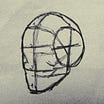I. Education as Humanity's Compass
The future quality of life and the survival of our species is vitally affected by our global ability to nurture and educate our young beginners of life. Without quality, neutral, curation of worldly history and knowledge, we stagnate and stay inside our cultural biases and limitations, creating great friction against the collective purpose of our species: namely survival (reproduction) and creation (science and technology).
There is a growing rift between realities of alike humans. Indefinite cultural, political and cynical views of our future and present have come to have the upper hand over over curiosity, questions and a belief of tomorrow's great opportunities. I'm not advocating for rose-colored glasses, but for the optimist with a concrete plan to build tomorrow: the definite optimist.
This is the great purpose of education organizations from grade school to universities. For education to nurture definite optimists, our institutions must become more responsive and adaptive—a shift requiring deliberate changes to our educational environment.
II. The Three-Fold Challenge
First is to recognize the creeping entropy that is making the energy of any organization less efficient. When entropy is not dealt with, disorder like bureaucracy, overhead and fatigue take over energy expenditure and directly zap available energy that should have been used to explore, experiment and learn. Entropy is the most time-consuming challenge for teachers.
Consider a typical school day: A teacher spends hours responding to administrative demands across multiple systems. Then rushes through lesson preparation to complete required documentation, that doesn't improve student outcomes. After school, teachers attend mandatory meetings about implementing yet another new platform. By day's end, they’ve spent less than 50% of her energy on actual teaching and learning.
Second is the need to manifest worldly information perspectives. Today, information is increasingly being filtered by political, cultural and economic views and ideologies. Gathering a worldly perspective is any student's sub-conscious challenge. Provided textbooks, teachers' ideologies and state politics are all great infiltrators of a higher level worldly information perspective. Students and teachers are reinforced by the tinted content to follow and learn the biased ideas.
A worldly perspective can mean having a broad understanding and knowledge of the world, being experienced in life, and being sophisticated and practical. This perspective involves understanding social, political, and economic issues and being able to navigate diverse cultural contexts effectively. It emphasizes the importance of real-world experience and adaptability.
The modern student must actively cultivate intellectual breadth beyond institutional boundaries, essentially reprogramming their mind to transcend what's formally taught.
Third, the evolution of our species is greatly dependent on our ability to pass on the wisdom we collect and create. Again, ideologies and tinted glasses are challenges that keep certain wisdom from being used or discussed because of individuals' desires. This manifests through unconscious biases and conscious decisions to discuss X, but exclude Y. This polarization is dangerous for humanity.
Reinforcing a certain truth, but not truths, is the definition of stupidity.
III. The Definite Optimist's Vision
After gaining insights into how education systems now operate, and to the extent education face these challenges, I've come to believe that we are at the hands of a generational problem that will shape how capable we are of positive evolution into the future.
The definite optimist doesn't just hope for improvement but designs specific paths toward it. This approach combines vision with concrete implementation – both the destination and the roadmap. It demands we maneuver entropy, polarization, and wisdom fractures, not as abstract concepts but as specific problems in need of set solutions.
A definite optimist is someone who believes the future will be better than the present specifically because they plan and work to make it better. This perspective combines both optimism about outcomes and a concrete approach to achieving them.
What would education look like if we successfully addressed these challenges? Imagine schools where teachers direct most of their energy toward meaningful human interaction because intelligent systems handle routine tasks. Picture learning environments where students develop robust thinking by engaging with truly diverse perspectives. And educational experiences that connect the dots of worldly perspectives, rather than fragmented pieces of ideologic knowledge.
This vision isn't utopian—it's achievable through the thoughtful application of technology guided by human wisdom. When applied technology can lessen the need of human mediators of ideas, algorithms can be verified and programmed not by ideology, but by requirements.
IV. The Technological Framework
Designing the technological solutions to wage innovation on polarization, entropy and cynical views is the challenge at hand. I have identified these three pillars upon where our technological counter strikes will be targeted.
Countering Entropy with Intelligent Systems
Technology can significantly reduce educational entropy by streamlining administrative processes and eliminating redundant tasks. Systems that unify fragmented administrative demands can reclaim significant teacher time and energy. When administrative burden decreases, schools can shift focus from compliance to creativity and connection.
Expanding Perspective with Information Architecture
Technology can counter information polarization by programmatically broadening rather than narrowing the perspectives students encounter. Well-designed teaching/learning platforms don't just provide information but reveal the different frameworks/worldviews through which topics are understood and discussed. This doesn't suggest all perspectives are equally valid, but develops awareness of how framing shapes learned information.
Preserving Wisdom with Knowledge Networks
Technology can help preserve and transmit wisdom by creating networks that connect insights across disciplines, cultures, and time periods. This looks like systems that map conceptual relationships rather than just storing facts, helping identify wisdom patterns across seemingly unrelated domains. Similar to how great authors like Robert Greene might use a story of Napoleon or a story of a ballet dancer to explain and convey the same underlying principle.
V. The Great Questions
How will technology counteract ideologically polarized views?
Not by filtering content further, but by intentionally exposing learners to diverse perspectives within structured frameworks that develop critical thinking. Technologies that visualize connections between seemingly opposing viewpoints can transform polarization into nuanced understanding. This will manifest through actively using mental models such as Game Theory to understand the incentives of the players and their role in the “game”. Systems designed to introduce intellectual diversity rather than reinforce existing views create the foundation for broader comprehension.
How will technology increase education energy toward evolution and order?
By intelligently managing entropy through systems that eliminate redundant tasks, unify fragmented processes, and focus human energy on activities that truly require human judgment. When teachers reclaim time from administrative burdens, teachers can invest that energy in understanding individual students' needs and cultivating meaningful learning experiences.
How will technology reinforce a worldly perspective on knowledge and history?
Through knowledge architectures that connect rather than isolate information, presenting multiple valid interpretations of complex issues and revealing the contextual frameworks that shape understanding. Technology can help preserve deep principles across disciplines while adapting to evolving knowledge, creating educational experiences that develop wisdom rather than merely transmitting facts.
VI. The Human Element
The ultimate purpose of educational technology isn't technological but deeply human. Every bit of entropy reduced, perspective broadened, or wisdom preserved serves a single goal: creating educational experiences that nurture fully developed human beings capable of navigating complexity with wisdom.
Technology succeeds when it enhances rather than replaces the human connections at education's core. The most effective educational technologies don't try to automate human judgment but amplify it—creating what might be called "augmented wisdom" rather than artificial intelligence.
VII. The Philosophical Imperative
Passing on balanced and worldly wisdom is reliant on solid answers to these profound questions. The answers will be technological and made accessible with AI.
When education fails to nurture definite optimists—those who combine vision with implementation—our collective future narrows. When entropy consumes educational energy, society loses its capacity for renewal. When polarization fragments knowledge, humanity forfeits its accumulated wisdom.
Conversely, when education fulfills its highest purpose, it becomes the engine of human flourishing. By reducing entropy, educational institutions create space for creativity and connection. By broadening perspective, we nurture intellectual humility and wisdom. Preserving complete wisdom makes each generation more wise than the last, building upon, rather than repeating the insights of those who came before.
01 Labs is founded on this purpose: to find, create and implement the answers to these profound questions—developing educational technology that serves humanity's highest aspirations while confronting our most challenging problems.






